|
|
Post by dino on Oct 8, 2007 15:21:48 GMT -5
how are things in Uranis? the NET is one of the greatest overrated thing about Bob Dylan, you could save 5 shows from each year, and that is until year 2000 of course
|
|
manho
New Member
Posts: 0 
|
Post by manho on Oct 13, 2007 13:17:28 GMT -5
5. Dylan's been spending a lot of time at the New York Public Library. Studying. Getting himself an education. And what's he been studying, I hear you ask: Beat poetry? Steinbeck? Bergman? Fellini? Nah, come on, it's obvious, he's been studying the Civil War again: "I started reading articles in newspapers on microfilm from 1855 to about 1865... Lincoln comes into the picture in the 1850s... In some ways the Civil War would be a battle between two kinds of time. Abolition of slavery didn't even seem to be an issue when the first shots were fired..." Yes, the Civil War seems to be one of the two major themes of the first section of the book - in his mind Dylan is hanging out in a bar in Bull Run, Rhett Butler moustache in full sprout - but for some strange reason he decided not to mention it again for the next 40 years: "I crammed my head full of as much of this stuff as I could stand and locked it away in my mind out of sight, left it alone. Figured I could send a truck back for it later." And he's made a new mucker. Guy called Len, who, like all the other guys Dylan hangs out with in the village is a cross between Socrates and Sonny Liston: "He was powerfully built, like a linebacker, could kick your silly ass from here to Chinatown, could probably break anybody's nose. He had studied economics and science, and had it down." Looks like all these Village guys Dylan met could kick the shit out of each other, no problem. Like, what's that all about, right? Len not only had science and economics down but he also had the history of art nailed: "The art world was changing, too, being turned on its head. Abstract painting... was hitting the scene, mangling recognizable reality. Goya himself would have been lost at sea if he'd tried to sail the new wave of art. Len and I would look at all this stuff for what it was worth, and not one cent more." I guess Dylan was thinking of Len when he swapped his Warhol Elvis for one of Albert Grossman's old sofas. The other major ongoing theme here is pop music and how crap it is. Dylan's still banging on about it after 80 pages: "As for myself, I had nothing against pop songs, but the definition of pop was changing. They just didn't seem to be as good as they used to be." Yeah, yeah, I think we've all got it now, Bob. Pop is shit and that's why you took the folk route for a few years before you started writing pop yourself. Of course, just like with Rick Nelson earlier in the chapter, Dylan finds exceptions to the bland popster reality surrounding him. Bobby Vee, for example: "Bobby had a metalic, edgy tone to his voice and it was as musical as a silver bell, like Buddy Holly's, only deeper." Bobby fucking Vee? Ok, I think i'm getting it slowly. Good is bad. Up is down. Black is white. Night is day... Lou Reed, Smalltown: www.sendspace.com/file/hljodxPhotos: Warhol Elvis (value, several million dollars). Old Sofa (value, fuck all).   |
|
manho
New Member
Posts: 0 
|
Post by manho on Oct 13, 2007 15:06:50 GMT -5
"Abstract painting... was hitting the scene, mangling recognizable reality. Goya himself would have been lost at sea if he'd tried to sail the new wave of art" "was hitting the scene" in the early 60s? check out these malevich works from around 1918: 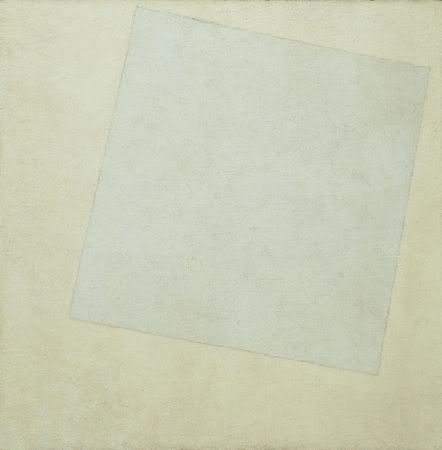  of course boby wouldn't have been aware of the fact that abstract art had started 50 years earlier cos he plumped for the library rather than the art gallery. MOMA bought white on white along with a good portion of the malevich estate in 1935. i believe duchamp was living in new york, too, at the time boby was up to his ears in civil war stuff. oh, and i don't really think goya would have had any problem dealing with abstract art. |
|
|
|
Post by owen on Oct 14, 2007 8:14:24 GMT -5
"Bobby fucking Vee?"
bob played with him so he must be good. bob doesnt play in crap bands...
|
|
|
|
Post by cripes on Oct 15, 2007 12:34:44 GMT -5
One time Nixon speech writer/game show host/actor Ben Stein sez:
Q: Did you read his memoir, “Chronicles”?
Stein: Yeah, that’s all bulls**t. He just made all that stuff up.
Q: You think so?
Stein: Yeah, he’s the biggest liar in the world. His lies are interesting, but they’re lies. Talking about remembering all the books that are on a bookshelf forty years ago — that’s just bulls**t. I mean he doesn’t even know how to tell the truth, but the fact is that the truth comes out anyway. He wouldn’t know the truth if it bit him in the face but the truth comes out anyway.
|
|
|
|
Post by owen on Oct 15, 2007 15:00:24 GMT -5
the stuff on the bookshelves thing is bob saying "you want to find out some interesting things about the 65-66 period? tough shit. heres what was on some guys shelf"
|
|
manho
New Member
Posts: 0 
|
Post by manho on Oct 17, 2007 16:11:09 GMT -5
funnily enough dylan deals with the lying thing in renaldo and clara. in the scene with sara and baez, remember. the two women agree that he's incapable of telling the truth or something (maybe someone could google the script?).
while that's all very cute in a relationship, it's a fucking pain in a biography.
|
|
manho
New Member
Posts: 0 
|
Post by manho on Oct 17, 2007 16:20:51 GMT -5
here's a couple of things by dylan's mate, len: 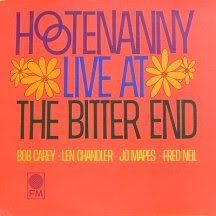 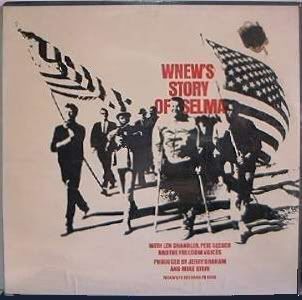 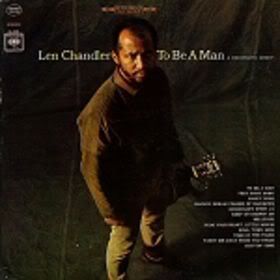 you just know boby hated this stuff, right? |
|
|
|
Post by owen on Oct 17, 2007 16:48:30 GMT -5
|
|
|
|
Post by cripes on Oct 17, 2007 17:06:10 GMT -5
R&C redux--
'I like the women, no doubt about it. They throw themselves at me all the time. Then they pull all this weird witchy shit....like, don't get between me and my music, ok? What a life'.
|
|
manho
New Member
Posts: 0 
|
Post by manho on Oct 21, 2007 10:56:29 GMT -5
6. Pages 95 to 98. Clear some space in the crowd over there, the big guys have arrived. Hank and Albert. Al and Henry: "Hank [Williams] had been in severe pain all his life... the pain must have been torturous. In light of that it's all the more astonishing to hear his records." Yep, you guessed it: the motorcycle accident, the damaged hand... But it's not just the pain and the physical suffering that Dylan has in common with Hank, they both have the same approach to writing songs. Based on calculus: "...in Hank's recorded songs were the archetype rules of poetic songwriting... Even his words - all of his syllables are divided up so they make perfect mathematical sense." And there you all were thinking they were just great tunes, right? Nope, it's maths and physics. Len knew all about it and so, it seems, did Hank. It wasn't long before Dylan was taking Hank's mathematical prowess into even greater realms of scientific genius: "The rules , whether Shelton knew it or not, were Hank's rules, but it wasn't like I ever meant to break them. It's just that what I was trying to express was beyond the circle."
"Beyond the circle"? There you go, he's thrown in a bit of geometry for you, too.
Hank was a let down from one side, though. He didn't go round kicking the shit out of people. Or at least Dylan doesn't mention it. I guess it was that bad back, right?
Albert, on the other hand, could take apart a rutting elk with his bare hands:
"Not your usual shopkeeper, he had owned a nightclub in the Windy City and had to deal with district bosses and various fixes and ordinances and carried a .45. Grossman was no hayseed."
Did you get that sly, "usual shopkeeper", reference? I wonder which other pop manager he could have been thinking about. No love lost between Jewish businessmen, right?
Yes, Albert was something special and it wouldn't be long before Dylan was desperate to get rid of him as a manager. He was that good.
Remember the worthless sofa and the multi-million dollar Warhol Elvis. You have to laugh, right? That was a good one.
And wasn't Abe just a, "usual shopkeeper"?
Here's a song by Johnny Rivers that Dylan talks about earlier in the chapter. He claims he prefered Johnny's version to his own:
Johnny Rivers, Positively 4th Street:
www.sendspace.com/file/nvxhj0
Photos: Hank. Albert.
 
|
|
|
|
Post by dino on Oct 21, 2007 15:41:24 GMT -5
most of hank williams songs were not written by him but by other people - he got the credits as the writer, tho
just like boby
|
|
manho
New Member
Posts: 0 
|
Post by manho on Oct 21, 2007 16:08:46 GMT -5
"most of hank williams songs were not written by him but by other people"
bullshit. you obviously know fuck all about maths.
|
|
manho
New Member
Posts: 0 
|
Post by manho on Oct 21, 2007 16:16:15 GMT -5
funnily enough, the epstein family had a furniture shop so brian certainly wouldn't have swapped a sofa for a warhol. i think abe sold pots and pans, right?
albert: i'll give you a complete set of teflon pans for that warhol elvis.
boby: you kiddin' me, man, a set of teflon pans? you think i don't know how much a set of fucking teflon pans costs?
albert: ok, ok. i'll trade you the warhol for this barely used sofa.
boby: ok, you got a deal.
|
|
hills
New Member
Posts: 0
|
Post by hills on Oct 21, 2007 16:30:22 GMT -5
most of hank williams songs were not written by him but by other people - he got the credits as the writer, tho just like boby names. |
|
david
New Member
Posts: 0
|
Post by david on Oct 21, 2007 16:40:32 GMT -5
I've never heard (before) that "most", or even many, of Hank's melodies were lifted from other people, but some were. For example, Jambalaya was a Cajun song called Grand Texas that Hank wrote new words for.
|
|
|
|
Post by owen on Oct 21, 2007 16:42:29 GMT -5
lovesick blues and lost highway were not written by hank.
thats about it.
|
|
manho
New Member
Posts: 0 
|
Post by manho on Oct 21, 2007 17:00:59 GMT -5
there's a whole thing about hank and a guy called fred rose. maybe he wrote them, maybe he didn't.
it wouldn't surprise me if hank was, "doing a boby", as it's called now and used a lot of old country tunes with no copyright on them. it was probably the norm back then.
i've just discovered that hank's name wasn't henry. it was hiram.
|
|
|
|
Post by dino on Oct 22, 2007 7:59:39 GMT -5
most of hank williams songs were not written by him but by other people - he got the credits as the writer, tho just like boby names. whettie' grandfather, the real name is top secret |
|
manho
New Member
Posts: 0 
|
Post by manho on Oct 27, 2007 15:19:47 GMT -5
7. We've skipped a generation. It's a new morning and we find our hero hushed in the presence of a true giant (what, another one, I hear you ask?): Archibald McLeish. Old Archie wants Bob to write some songs for a Broadway play he's putting on. Archie is right up there with Carl Sandburg and Robert Frost: "These three, the Yeats, Browning and Shelley of the New World, were gigantic figures, had defined the landscape of twentieth-century America. They put everything in perspective. Even if you didn't know their poems you knew their names." Knew their names? Well, I have no problem with Sandburg and Frost but we don't get Mcleish over here in Europe for some reason. Wondering why, I checked out his rep online: "MacLeish greatly admired T. S. Eliot and Ezra Pound, and his work shows quite a bit of their influence. In fact, some critics charge that his poetry is derivative and adds little of MacLeish's own voice." Oh, that will be why, then. He got his fingers caught in the plagiarist till. Timrod, anybody? Anyway, Archie turns Dylan on to Stephen Crane, whose book, The Red Badge of Courage, is the definitive novel on the American Civil War: "Crane was the Robert Johnson of literature." Funny Bob had never come across him before when he was studying up all that Civil War stuff in the New York Public Library, right? Bob turns Archie down for some reason. He's suffering. He can't shake off the, "spokesman for a generation", tag they nailed on him way back when he was a ramblin' an' a gamblin' an' a fartin' an a pissin'. He can't understand why they ever thought of him like that in the first place: "I had very little in common with and knew even less about a generation I was supposed to be the voice of. I'd left my hometown only ten years earlier and wasn't vociferating the opinions of anybody. I was more a cowpuncher than a Pied Piper." Wasn't vociferating the opinions of anybody? Maybe not, but he sure was vociferating his own opinions: "Grossman was no hayseed" "Hank was no burrhead" "Orbison was no pollywog" "Mike Seeger was a duke" "Joe Hill was messianic" "Neuwirth was a bulldog" Everybody Dylan ever met or knew was vociferated to death. Everybody was a fucking giant. Even Bobby Neuwirth was a mythical figure: "If there ever was a renaissance man leaping in and out of things, he would have to be it... I got a kick out of everything he did and liked him. Neuwirth had talent but he wasn't ambitious." Talented but not ambitious? Neuwirth was ambitious enough to hang round with Dylan, Ginsberg, Grossman, Warhol... If he'd had enough talent Albert would have snaffled him up like a tutti frutti ice cream. Neuwirth had a weak voice, wrote nothing of any value and was a mediocre painter. But, of course, he couldn't have been in there with the giants if it was talent he lacked, right? More a cowpuncher? Change the cow for a bull and the punch for shit and you're on the ball there, Bob. The Fureys, Morning Has Broken: www.sendspace.com/file/lkm9fcPhotos: Bobby Neuwirth. Archibald McLeish. 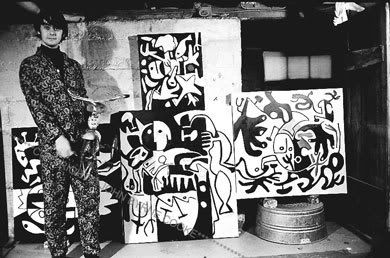 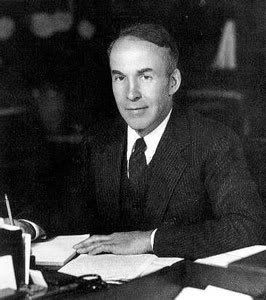 |
|